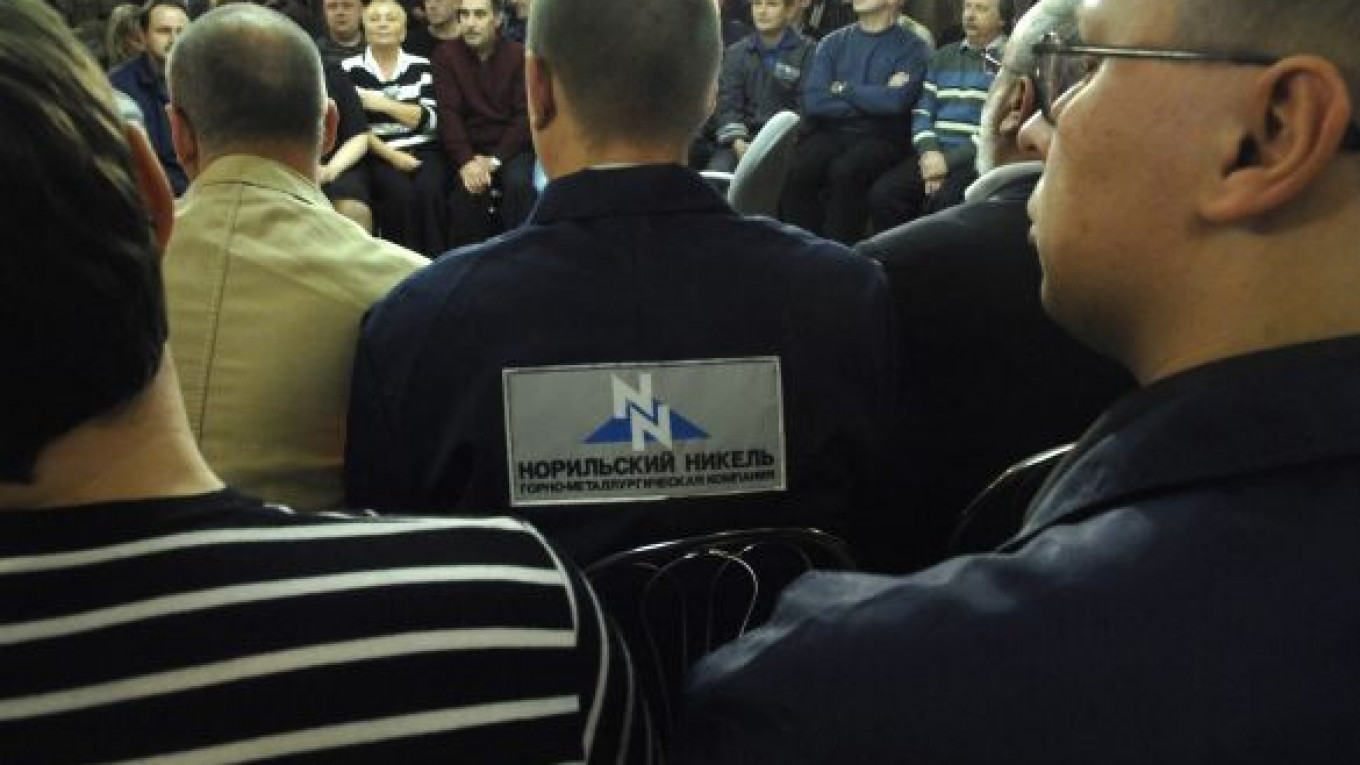A labor shortage is forcing companies to find creative ways to attract and keep blue-collar workers. Basic Element is ready to double salaries over the next two years, provide assistance for better housing and even dole out equity packages.
There have been dramatic changes to the Russian labor market, said Viktoria Petrova, deputy general director of Basic Element, or Basel. The crisis is over, markets are growing, and demand for workers is colossal. Basel is primarily facing a deficit of engineers, project managers and highly qualified workers.
"There are few such specialists in the country, and the number is not growing. Every year for every significant business category we review the exact same lists of 100 to 150 names," Petrova said.
Basel has decided to fight this problem by radically altering its human resources policy. "We are abandoning our mentality of cutting costs on personnel," Petrova said. "Staff is becoming a key resource."
The new policy is still in the works. But the general principles are already understood: double the average salary for rank-and-file employees by 2013, improve housing and working conditions, and offer workers at all levels shares in the company — this could involve up to 10 percent of total company equity, including shares not publicly traded.
The new policy will benefit 230,000 people, Petrova promised. The company employs a total of 260,000, of which about 30,000 are executives — who already have their own salary and retention programs deployed or in the works, Petrova said.
Basic Element's RusAl and GAZ Group already have parts of the new program in place, she said.
Yekaterina Nikitina, personnel director at RusAl, said the average salary at her company is 35,000 to 40,000 rubles ($1,200 to $1,400) per month. The goal is to increase that to 60,000 rubles by 2013. Additional spending on staff will amount to $100 million this year, $200 million next year and $300 million in 2013.
The unfavorable demographic situation is also contributing to the labor shortage, said Stanislav Tsyrlin, vice present of human resources at Novolipetsk Steel, known by its Russian acronym NLMK. From 2002 to 2010 the number of school graduates in Lipetsk plummeted from 6,000 to 2,000 graduates per year. Their motivation to work in the industrial sector has also significantly dropped, Tsyrlin said.
NLMK has set guaranteed pay levels for new employees, and salaries are rising versus 2008 levels — more than 15 percent for high school graduates and 65 percent for college graduates.
Norilsk Nickel has opted to increase spending on salaries and social packages. It ramped up spending 15 percent in 2010 year on year and increased its average salary 14.7 percent to 55,900 rubles for workers at its Russian enterprises — 2.6 times greater than the national average and 2.3 times that of the metals industry, a spokesman said.
Evraz is paying for additional medical insurance for its workers and partially footing the bill for their vacations. In the regions, the company is paying half the interest on employees' mortgages, vice president Oleg Kuzmin said.
Interros is definitely not planning to create a completely vertical motivation system for all companies in the group, a spokesperson said. Every business is unique.
Prior to the mid-2000s, companies paid little attention to human resources, said Yermolai Solzhenitsyn, managing partner at McKinsey's Moscow office. But by 2006-08, production growth was exhausted. It became hard to ignore issues of labor productivity and management. Now company heads realize that modern production requires workers who are enthusiastic and highly qualified, not robots, Solzhenitsyn said.
RusAl will address labor shortages in the Republic of Guinea, where it has subsidiaries, by sponsoring 100 students from the African country to study in Russia, the company said in a statement Thursday.
Guinean students will be able to study for degrees in mining, railroad operations, economics, building and construction, agriculture, water supply, medicine and human resources.
The program is scheduled for the next five years, during which the company estimates it will spend more than $5.5 million on educating Guinean specialists, who would then find positions at RusAl subsidiaries back home. More than 2,700 applications have been submitted so far.
A Message from The Moscow Times:
Dear readers,
We are facing unprecedented challenges. Russia's Prosecutor General's Office has designated The Moscow Times as an "undesirable" organization, criminalizing our work and putting our staff at risk of prosecution. This follows our earlier unjust labeling as a "foreign agent."
These actions are direct attempts to silence independent journalism in Russia. The authorities claim our work "discredits the decisions of the Russian leadership." We see things differently: we strive to provide accurate, unbiased reporting on Russia.
We, the journalists of The Moscow Times, refuse to be silenced. But to continue our work, we need your help.
Your support, no matter how small, makes a world of difference. If you can, please support us monthly starting from just $2. It's quick to set up, and every contribution makes a significant impact.
By supporting The Moscow Times, you're defending open, independent journalism in the face of repression. Thank you for standing with us.
Remind me later.






